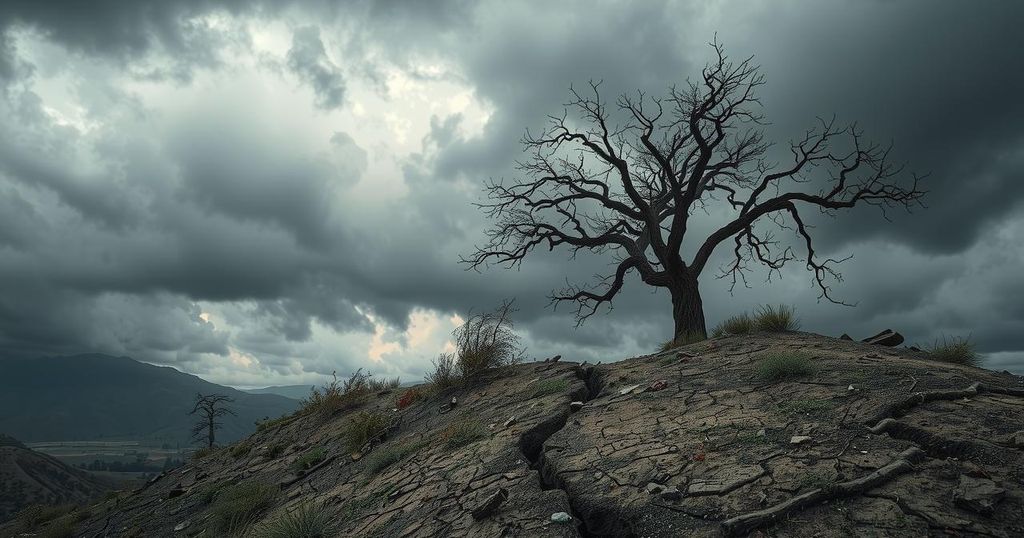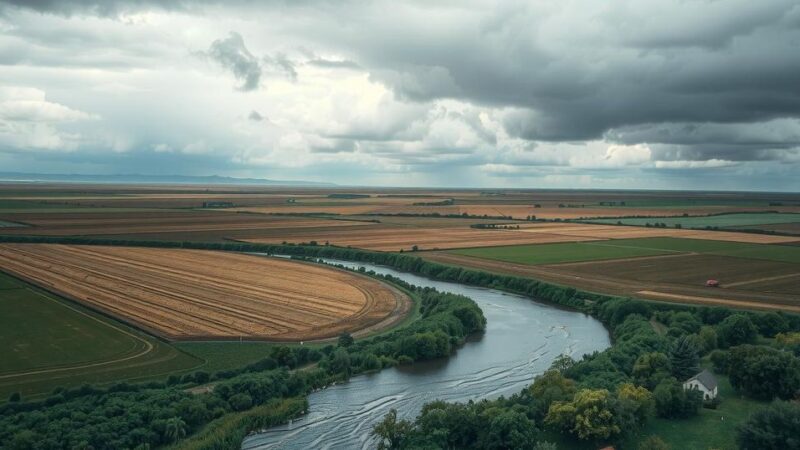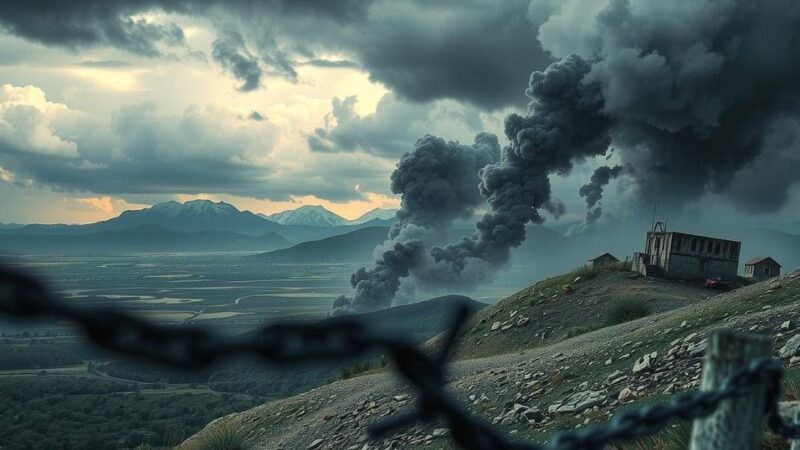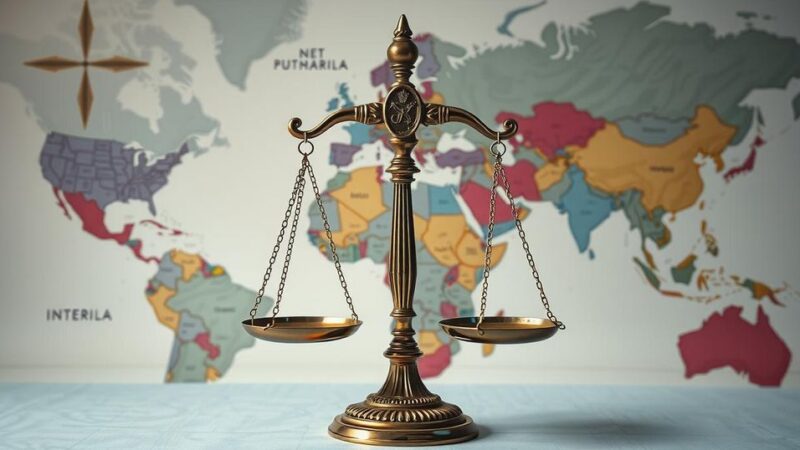Monsignor Donatien Nshole highlighted the “catastrophic” humanitarian crisis in eastern DRC, exacerbated by fighting between government forces and M23 rebels. Over 200,000 individuals have been displaced, and ongoing violence continues to impact access to essential services. Amidst rising fears in Goma, the church and state are advocating for peace through prayer as the war persists, with increasing international concern over human rights violations.
Monsignor Donatien Nshole, Secretary General of the Bishops’ Conference of the Democratic Republic of Congo (DRC), has described the situation in the conflict-ridden eastern region of the country as “catastrophic.” His statements followed a meeting with Minister of Justice Constant Mutamba, amid fierce fighting between government forces and Rwanda-supported M23 rebels, which has displaced over 200,000 individuals.
The ongoing violence in eastern DRC has seen extensive humanitarian crises, leading to mass displacements and severe resources shortages, complicating access to essential services like healthcare and education. With approximately 120 armed groups active in the region, conditions continue to deteriorate, prompting calls for urgent attention and peace efforts.
Reports from the town of Goma indicate rising panic among residents as M23 rebels allegedly seized nearby Sake, causing people to flee in chaos. Witnesses describe heart-wrenching scenes of families separated, with many left uncertain about their futures. This crisis has raised concerns about the lack of effective measures to alleviate the suffering of the civilian population.
Elie Mbulegheti, Director of Communications for Caritas Butembo-Beni, emphasized the dire need for aid as conflicts contribute to widespread famine and human rights violations. Hospitals are overwhelmed, with over 215 injured individuals admitted to ICRC-supported facilities within a short period, highlighting the urgent need for medical support.
Amnesty International has condemned both the Congolese Armed Forces and M23 rebels for multiple violations of international humanitarian law, citing the extensive use of explosive weapons in civilian areas as particularly egregious. This escalation in violence, resulting in numerous civilian casualties, underscores the urgent need for international intervention and accountability.
The conflict, deeply rooted in historical tensions following the Rwandan genocide and subsequent events, has persisted for decades, causing over six million deaths and immense suffering. Diplomatic efforts to resolve the crisis have repeatedly faltered, further complicating the humanitarian landscape in the region.
Both the church and state have recognized the power of prayer in seeking peace, leading to a unified initiative to organize a day of prayer on February 9, 2025. Monsignor Nshole clarified that the objective is to pray for peace and reconciliation rather than victory in war, indicating a collective desire for an end to hostilities and true healing among communities.
The eastern Democratic Republic of Congo has long been a conflict zone, exacerbated by the aftermath of the 1994 Rwandan genocide, which led to an influx of refugees and the rise of ethnic tensions. The area has been plagued by a myriad of armed groups and ongoing violence, resulting in significant humanitarian crises characterized by mass displacements and violations of human rights. Recent reports indicate a particular escalation in conflict and suffering, with pressing calls for peace and immediate aid.
In conclusion, the situation in eastern DRC remains dire, marked by extensive violence, widespread displacement, and humanitarian crises. The church and government are united in the belief that prayer can foster peace amid continuous suffering. As both local and international actors grapple with this complex conflict, the pressing need for humanitarian aid and a path toward reconciliation is more critical than ever.
Original Source: cruxnow.com







